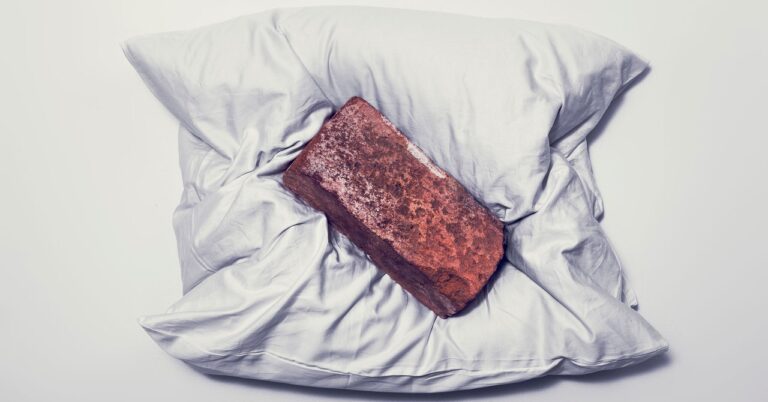
[ad_1]
If that’s not an option, consider tweaking things. Dow recommends an app called F.lux, which tints your computer’s display red to reduce the amount of blue light your screens put out. Apple devices have a similar feature, called Night Shift, built into macOS. It’s not as good as avoiding screens, but it’s better than nothing.
Hide the Clock
If you’re waking up throughout the night, don’t panic: That’s normal. Most people wake up five to six times throughout the night, Dow tells me, but most of the time you don’t remember it—unless you’re already anxious about sleep and happen to notice the time, then think to yourself how long you’ve been awake.
“That calculating, that math, is going to wake you up,” says Dow, adding that the problem is even worse if you’re already anxious about sleep. Her solution: Flip over your phone, or move your alarm clock, so that you can’t see the time. “If you don’t see the clock, you’ll go back to sleep and forget you ever woke up,” she tells me.
While we’re talking about clocks: Try not to depend on the snooze button. That extra 10 minutes might feel good, but it’s not quality sleep. Consider putting your alarm clock across the room, so you have to actually get up in order to turn it off.
Cool Things Down
You might think you love a toasty bedroom in the winter, but your body doesn’t necessarily agree.
“Humans do better when it’s cooler at night,” says Dow. The ideal sleeping temperature is somewhere between 60 and 70 degrees Fahrenheit. Crack your bedroom window at night, if you need to, even in the winter.
Give Your Brain Something to Do
When you can’t sleep, it’s easy to spend your time thinking about how you can’t sleep. That’s why Dow recommends giving your brain something else to focus on.
“Do something that is moderately interesting,” she says, mentioning word games, simple math problems, or thinking of a story in your head as examples. Just avoid one classic trope: “Counting sheep isn’t good enough. You can worry and count sheep at the same time; it’s too simple.” She recommended counting down from 100 by seven instead.
Of course, you could use a distraction instead—an audio book, say, or a podcast. But Dow cautions that it’s not good to get dependent on an outside stimulus like that.
“It works, but then we’re relying on an outside source to help us fall asleep,” she says. “Any time your tool is not there, there’s a risk of failure if you don’t have access.”
So find some kind of mental activity that doesn’t depend on a device. “Affirmations, meditations, breathing techniques—you choose, but every time your brain goes onto the path toward stressful thoughts, you need to bring it back,” says Dow.
Get Good Rest
Not sleeping enough makes everything in your life worse. I know: A couple of years ago I had persistent insomnia. I was already suffering from depression, in part because of a bad work situation, and my lack of sleep fed into those problems.
I don’t have those issues anymore, thanks to a combination of therapy, medication, and an improvement in my work situation. If your sleep problems are like mine, no amount of lifehacks are going to solve the issue—instead, this might be an opportunity to examine what, exactly, is making your life so stressful that you can’t sleep. Maybe you need to quit a toxic work environment, like I did. Maybe you’re in a bad relationship, or a bad living situation. Or maybe you just need help with your mental health. This is an opportunity to take care of yourself.
I’m thankful for every solid night of sleep I get, and if you’re suffering from a lack of sleep, I’m sorry. I hope these tips help you at least a little.
[ad_2]